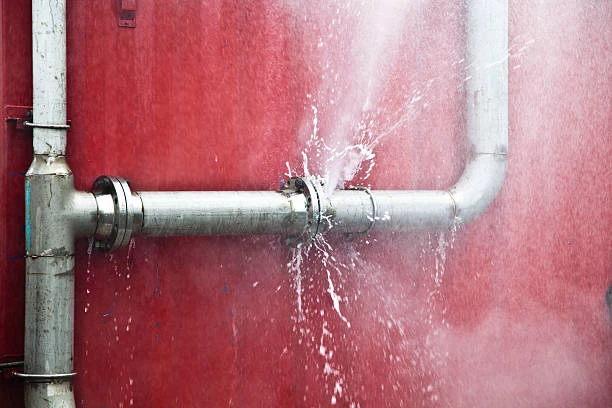Epigral, a leading name in the polymer industry, has announced expansion of its CPVC (Chlorinated Polyvinyl Chloride) resin manufacturing capacity at its facility in Dahej, India. This strategic move aims to meet the growing demand for CPVC materials and particularly in the production of PVC fittings. In this article, we will delve into the reasons behind expansion, the benefits of PVC, and its role inmanufacturing of fittings.
Understanding CPVC and Its Benefits
PVC is a thermoplastic material widely use in various applications, including plumbing, industrial piping, and electrical conduits. Its popularity stems from several key benefits:
- Chemical Resistance: PVC is highly resistant to a wide range of chemicals and making it suitable for both residential and industrial applications where exposure to corrosive substances is common.
- Temperature Tolerance: PVC can withstand temperatures up to 200°F (about 93°C), making it ideal for hot water transport. This characteristic is particularly beneficial for plumbing systems that require durability under heat stress.
- Lightweight and Easy to Install: Compared to traditional materials like metal, PVC is significantly lighter, which simplifies handling and installation. This can lead to reduced labor costs and faster project completion times.
- Longevity: The resistance of PVC to corrosion and degradation ensures a long lifespan, reducing the need for frequent replacements.
- Cost-Effectiveness: With lower material costs and maintenance needs compared to other piping materials, CPVC provides an economical solution for various applications.
The Role of CPVC in CPVC Fittings
PVC fittings are essential components in plumbing and industrial systems. They connect pipes and allow for directional changes in piping layouts. The demand for high-quality PVC fittings has surged due to increasing construction and infrastructure development. Here’s how PVC plays a crucial role in this sector:

- Versatile Applications: CPVC fittings can be use in both residential and commercial applications, making them a versatile choice for builders and contractors.
- Ease of Fabrication: The properties of CPVC allow for easy shaping, enabling manufacturers to produce a variety of fittings.
- Strong Joint Integrity: When used in conjunction with CPVC pipes, PVC create strong, connections that enhance overall reliability of systems.
Epigral’s Expansion in Dahej
The expansion of Epigral’s manufacturing capacity at Dahej is a timely response to the growing demand for CPVC resin. By increasing production capabilities, Epigral aims to ensure a steady supply of high-quality PVC materials for the manufacturing of PVC fittings.
Investment in Technology: The expansion includes upgrading existing technology and processes, ensuring that the production meets stringent quality standards. This will enable Epigral to produce PVC resin that is not only durable but also compliant with international standards.
Market Trends: The construction industry in India is witnessing rapid growth, driven by urbanization and infrastructural development. With the government’s push for affordable housing and smart cities, the demand for efficient plumbing systems utilizing CPVC fittings is set to rise.
Sustainability Focus: Epigral is also commit to sustainability. The expansion will incorporate eco-friendly practices, ensuring that the production process has minimal environmental impact. This aligns with global trends towards sustainable manufacturing practices.
The Future of CPVC and CPVC Fittings
As the construction industry continues to evolve, the future of CPVC (Chlorinated Polyvinyl Chloride) and PVC (Polyvinyl Chloride) fittings looks promising. These materials have long been favored for their durability, resistance to corrosion, and ease of installation. However, ongoing innovations are set to enhance their applications even further.
1. Increased Adoption Across Sectors
The adaptability of CPVC and PVC fittings is leading to their use in various sectors beyond traditional plumbing. Industries such as telecommunications, electrical, and even renewable energy are beginning to recognize the benefits of these materials. Their lightweight nature and resistance to environmental factors make them ideal for a range of applications, from water distribution systems to cable management solutions.
2. Advancements in Material Formulations
Innovations in the formulations of CPVC and PVC are expected to yield materials that are not only more efficient but also more sustainable. Research is focusing on improving thermal stability and reducing the environmental impact of production processes. These advancements will make CPVC and PVC fittings even more appealing to eco-conscious builders and contractors.
3. Enhanced Performance Characteristics
Future developments may lead to fittings that can withstand higher pressures and temperatures, broadening their application scope. This means that CPVC and PVC could be utilized in more demanding environments, such as industrial settings or areas prone to extreme weather.
Conclusion of CPVC
Epigral’s expansion of CPVC resin manufacturing capacity at Dahej marks a significant milestone in meeting the rising demand for high-quality PVC fittings. With its many benefits, including chemical resistance, temperature tolerance, and cost-effectiveness and CPVC continues to be a favored choice in the construction industry. As Epigral strengthens its position, the future for PVC and PVC fittings looks bright.
FAQs
- What are the primary uses of CPVC fittings?
CPVC fittings are primarily use in plumbing, industrial piping systems, and electrical conduits due to their durability and resistance to chemicals. - How does CPVC compare to other materials like PVC or metal?
CPVC offers better heat resistance and chemical durability than standard PVC, while being lighter and easier to install than metal options. - Can PVC fittings be use for hot water applications?
Yes, PVC is suitable for hot water applications, withstanding temperatures up to 200°F (about 93°C). - What advantages does Epigral’s expansion bring to the market?
The expansion increases the supply of high-quality PVC resin, ensuring manufacturers have access to reliable materials for producing PVC fittings. - Are CPVC fittings environmentally friendly?
Yes, PVC is recyclable, and manufacturers like Epigral are adopting sustainable practices in their production processes.


















